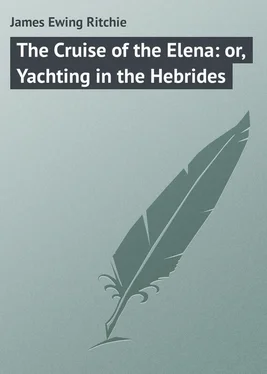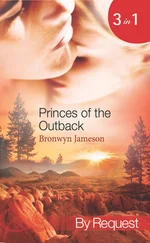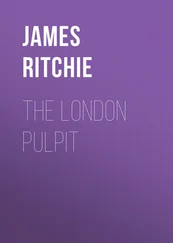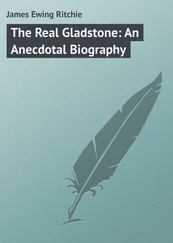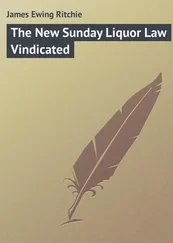James Ritchie - The Cruise of the Elena - or, Yachting in the Hebrides
Здесь есть возможность читать онлайн «James Ritchie - The Cruise of the Elena - or, Yachting in the Hebrides» — ознакомительный отрывок электронной книги совершенно бесплатно, а после прочтения отрывка купить полную версию. В некоторых случаях можно слушать аудио, скачать через торрент в формате fb2 и присутствует краткое содержание. Жанр: foreign_prose, на английском языке. Описание произведения, (предисловие) а так же отзывы посетителей доступны на портале библиотеки ЛибКат.
- Название:The Cruise of the Elena: or, Yachting in the Hebrides
- Автор:
- Жанр:
- Год:неизвестен
- ISBN:нет данных
- Рейтинг книги:4 / 5. Голосов: 1
-
Избранное:Добавить в избранное
- Отзывы:
-
Ваша оценка:
- 80
- 1
- 2
- 3
- 4
- 5
The Cruise of the Elena: or, Yachting in the Hebrides: краткое содержание, описание и аннотация
Предлагаем к чтению аннотацию, описание, краткое содержание или предисловие (зависит от того, что написал сам автор книги «The Cruise of the Elena: or, Yachting in the Hebrides»). Если вы не нашли необходимую информацию о книге — напишите в комментариях, мы постараемся отыскать её.
The Cruise of the Elena: or, Yachting in the Hebrides — читать онлайн ознакомительный отрывок
Ниже представлен текст книги, разбитый по страницам. Система сохранения места последней прочитанной страницы, позволяет с удобством читать онлайн бесплатно книгу «The Cruise of the Elena: or, Yachting in the Hebrides», без необходимости каждый раз заново искать на чём Вы остановились. Поставьте закладку, и сможете в любой момент перейти на страницу, на которой закончили чтение.
Интервал:
Закладка:
Ritchie J. Ewing James Ewing
The Cruise of the Elena; Or, Yachting in the Hebrides
CHAPTER I.
off for greenock
The late – I had almost written the last – Imperial ruler of France was wont to say – indeed, it was his favourite maxim – “Everything comes to him who waits.” It was not exactly true in his case. Just as he was to have placed himself at the head of his followers, and make his reappearance in France, and to have effaced the recollections of Sedan, Death, who waits for no one, who comes at the appointed time to all, put a stop to his career. Nevertheless, the saying is more or less true, and especially as regards my appearance on board the Elena . Whether my great great grandfather was a Viking or no, I am unable to say; all I know is, from my youth upwards I have longed for a yacht in which I could cruise at my own sweet will. I am no great hand at singing, but when I do sing it is always of a
“Life on the ocean wave,
A home on the rolling deep.”
And thus it happened that, when an invitation was sent to me, just as I was on the point of giving up the ghost, in consequence of the heat of a London summer, to leave Fleet Street, and cruise among the Western Islands of Scotland, I accepted it, as the reader may well suppose, at once.
It is somewhat of a journey by the Midland night express from London to Greenock; but the journey is one well worth taking, even if, as in my case, you do not get a Pullman car, as that had been already filled, and was booked full, so the ticket manager said, for at any rate twelve days in advance. It is really interesting to see that express start. “It is an uncommon fine sight,” said a man to me the other night, as he lit his pipe at the St. Pancras Station. “I always come here when I’ve done work; it is cheaper than a public-house.” And so it is, and far better in awakening the intellect or stimulating the life. It is true I did not see the express start, as I happened to be in it; but I had another and a greater pleasure – that of being whirled along the country, from one great city or hive of industry to another, till I found myself early in the morning looking down from the heights of Greenock on the busy Clyde below. It was a grand panorama, not easily to be forgotten. All at once it opens on you, and you enjoy the view all the more as it comes in so unexpected a manner.
Let me pause, and say a good word for the line that bears me swiftly and safely and pleasantly on.
The story of railway enterprise as connected with the Midland Railway has been told in a very bulky volume by Mr. J. Williams. I learn from it that forty years have elapsed since, originating in the necessity of a few coal-owners, it has gradually stretched out its iron arms till its ramifications are to be found in all parts of the land. Actually, up to the present time it has involved an expenditure of fifty millions, and its annual revenue reaches five. Daily – hourly, it rushes, with its heavy load of tourists, or holiday-makers, or men of business, past the ancient manor-houses of Wingfield, Haddon, and Rousbery; the abbeys of St. Albans, Leicester, Newstead, Kirkstall, Beauchief, and Evesham; the castles of Someries, Skipton, Sandal, Berkeley, Tamworth, Hay, Clifford, Codnor, Ashby, Nottingham, Leicester, Lincoln, and Newark; the battle-fields of St. Albans, Bosworth, Wakefield, Tewkesbury, and Evesham.
But it is to that part of the line between Carlisle and Settle that I would more particularly refer – that boon to the southern tourist who, as the writer did, takes his seat in a Midland carriage at St. Pancras, and finds himself, without a change of carriage, the next morning at Greenock in time for the far-famed breakfasts on board the Iona . The ordinary traveller has no idea of the difficulties which at one time lay between him and his journey’s end. “It is a very rare thing,” once said Mr. Allport, the great Midland Railway manager, a name honoured everywhere, “for me to go down to Carlisle without being turned out twice. Then, although some of the largest towns in England are upon the Midland system, there is no through carriage to Edinburgh, unless we occasionally have a family going down, and then we make an especial arrangement, and apply for a special carriage to go through. We have applied in vain for through carriages to Scotland over and over again.” And so the Midland had no alternative but to have a line of their own. When it was known at Appleby that their Bill had passed the Commons, the church bells were rung, and, as was quaintly remarked, the people wrote to the newspapers, and did all that was proper under the circumstances. No wonder Appleby rejoiced and was glad; for, though the county town of Westmoreland, it is not much of a place after all, and the railway must have been a boon to the natives – especially to the ladies, who otherwise, it is to be feared, would have wasted their sweetness on the desert air.
On Monday, the 2nd of August, 1875, after an expenditure of three millions, the Settle and Carlisle line was opened for goods traffic. It must have been an awful undertaking, the making of it. “I declare,” said a rhetorical farmer, “there is not a level piece of ground big enough to build a house upon all the way between Settle and Carlisle.” An ascent had to be made to a height of more than a thousand feet above the level of the sea, by an incline that should be easy enough for the swiftest passenger expresses and for the heaviest mineral trains to pass securely and punctually up and down, not only in the light days of summer, but in the darkest and “greasiest” December nights. To construct it the men had to cut the boulder clay – very unpleasant stuff to deal with – to hew through granite, to build on morasses and dismal swamps. Near the southernmost end of the valley, watered by the roaring Ribble, the town of Settle stands among wooded hills, overhung by a lofty limestone rock called Castlebar; while far beyond on the left and right rise, above the sea of mountains, the mighty outlines of Whernside and Pennegent, often hid in the dark clouds of trailing mists. Up the valley the new line runs, pursuing its way among perhaps the loneliest dales, the wildest mountain wastes, and the scantiest population of any part of England. Three miles from Settle we reach Stainforth Force, and just beyond are the remains of a Roman camp. At Batty Green the navvies declared that they were in one of the wildest, windiest, coldest, and dreariest localities in the world. In the old coaching days the journey across these wilds was most disagreeable and trying. It was no unusual thing, we read, for rain to come down upon the travellers in torrents; for snow to fall in darkened flakes or driving showers of powdered ice; for winds to blow and howl with hurricane force, bewildering to man and beast; for frost to bite and benumb both hands and face till feeling was almost gone; and for hail and sleet to blind the traveller’s eyes and to make his face smart as if beaten with a myriad of slender cords. In Dent Dale, which is almost ten miles in length, the scenery is remarkably fine. Nearly five hundred feet below, now sparkling in the sunlight, now losing itself among some clusters of trees, winds the river Dee; while first on one side and then on the other is the road that leads to Sedbergh. Leaving the tunnel, we find ourselves in Garsdale, in a milder clime and amidst more attractive scenery. Some four hundred feet below us the river may be observed winding over its rocky bed in the direction of Sedbergh, while we get extensive views on the west. Presently we see the Moorside Inn, a far-famed hostelry abounding in mountain dew, standing at the head of the valleys – the Wensleydale, winding eastward towards Hawes; the Garsdale Valley, going westward towards Sedbergh; and the Mallerstang, leading northwards towards Kirkby Stephen.
Читать дальшеИнтервал:
Закладка:
Похожие книги на «The Cruise of the Elena: or, Yachting in the Hebrides»
Представляем Вашему вниманию похожие книги на «The Cruise of the Elena: or, Yachting in the Hebrides» списком для выбора. Мы отобрали схожую по названию и смыслу литературу в надежде предоставить читателям больше вариантов отыскать новые, интересные, ещё непрочитанные произведения.
Обсуждение, отзывы о книге «The Cruise of the Elena: or, Yachting in the Hebrides» и просто собственные мнения читателей. Оставьте ваши комментарии, напишите, что Вы думаете о произведении, его смысле или главных героях. Укажите что конкретно понравилось, а что нет, и почему Вы так считаете.
